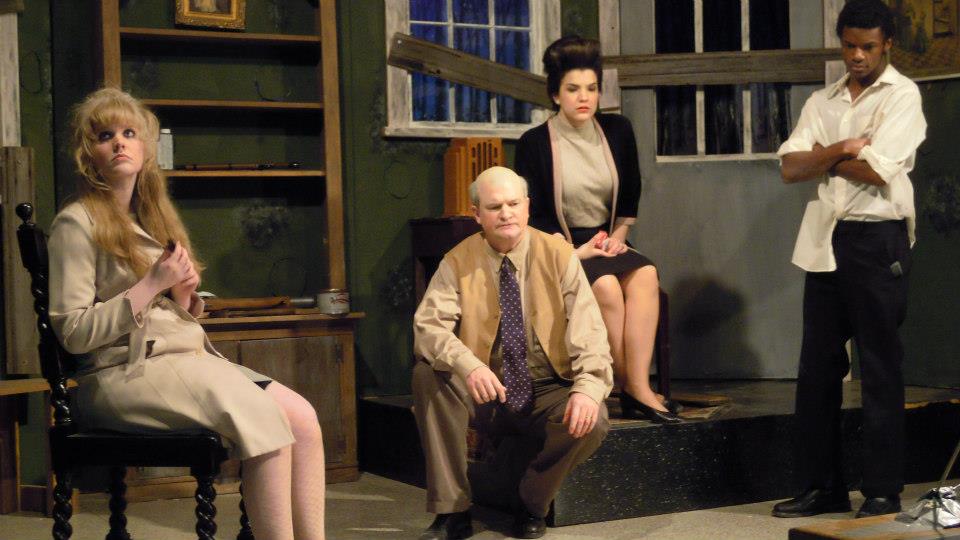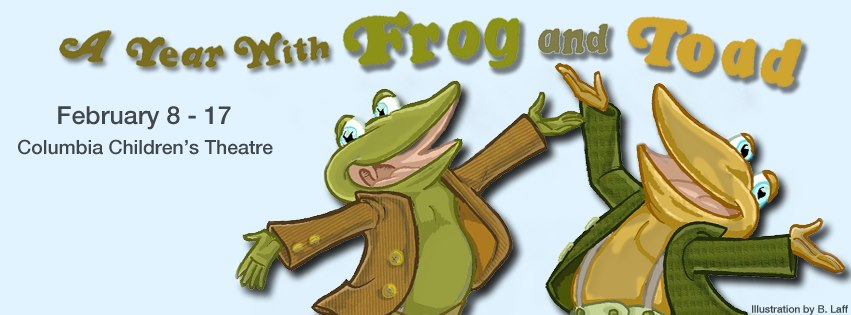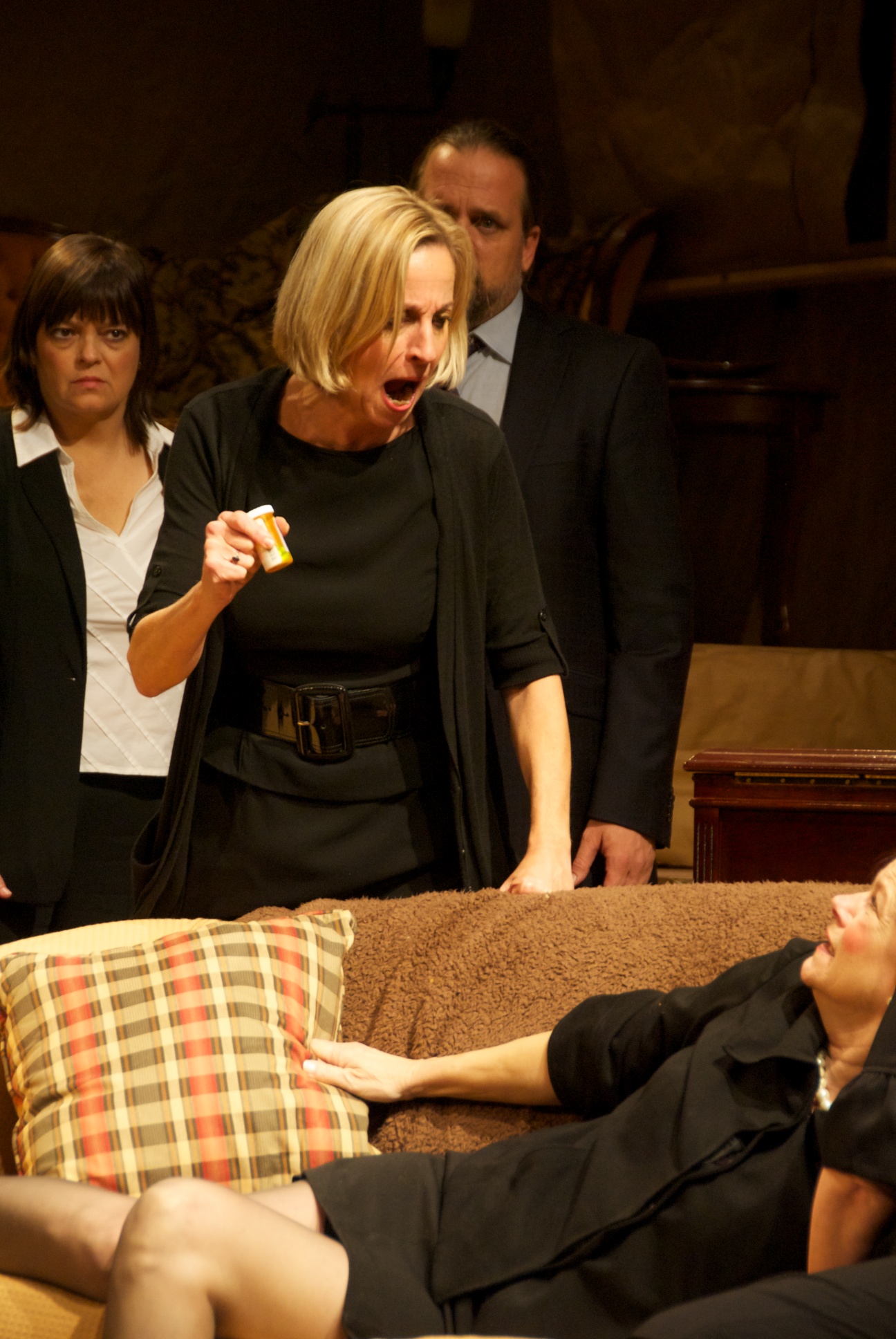"We're the theatre that curses and does nude shows," Trustus co-founder Jim Thigpen joked in the very first issue of Jasper. And how. The Mother*#%$er With the Hat features plenty of full frontal male and female nudity, liberal use of the title expletive along with its many cognates and derivatives, plus violence, and drug and alcohol abuse. Or, as an old roommate used to say, that's four-star entertainment right there for sure. Director Chad Henderson notes in the program that author Stephen Adly Guirgis chose the title as a disclaimer to signify the intensity of the subject matter, a sort of "let the buyer beware" warning so that the audience has no illusions as to the grittiness of the themes or dialogue. That said, there is plenty of comedy, a few moments of tenderness and compassion, and a lot of insight into human nature, however dysfunctional and self-destructive that may be. The play's five characters are low-lifes, addicts, ex-cons, alcoholics and/or scumbags, but thanks to the commitment of the performers, and some creativity from Henderson and scenic designer Kimi Maeda, we sort of kind of care about them, at times anyway.

Jackie (Alexis Casanovas) is newly paroled and newly sober; his AA sponsor Ralph (Shane Silman) now sells nutritional supplements instead of drugs, and has stayed sober for 16 years in spite of a tumultuous marriage to Victoria (Michelle Jacobs) whom he met, you guessed it, at a meeting. Jackie's cousin Julio (Joe Morales) has likewise channeled his energies into therapeutic massage and perfecting his recipe for the perfect empanada, but is ready to stash a handgun or channel his inner Van Damme in a rumble. Veronica (Raia Jane Hirsch) still uses, and may be cheating on Jackie with the titular character, who could just as easily be called "some dude who may be doing my girlfriend." Or Jackie may just be paranoid, and in need of a refresher course on the Twelve Steps. All five actors believably flesh out these damaged characters as they navigate the choppy waters of recovery, relationships and betrayal. At one point, Silman and Casanovas are so intently arguing with each other that one gets the impression that they have forgotten the audience entirely, and instead just really want to win the argument, using the playwright's words. Equally impressive is the way that the actors bare their souls on stage while baring everything else, yet manage to stay in character, and never miss a beat. The dialogue is very honest, which again explains the play's title, since people use the term so frequently these days, especially in the sub-culture we see depicted here.
Guirgis has a way of relaying fairly profound thoughts and ideas via the natural cadences of simple and ineloquent people. At some level, all the characters realize how badly they have messed up their own lives, and how tenuous their grasp on stability is. Yet "the space between who you are, and who you think you are, is pretty wide," as Cousin Julio tells Jackie - cautionary words for us all. Morales, deadpan as Julio, provides most of the wisdom in the first act, which is in many ways a comedy, although one peopled with sad, tragic figures. The second act is more of a serious drama, although full of hilarious lines, most spoken by Julio. Guirgis once worked on an episode of The Sopranos (as did two of the original Broadway cast, including the original Victoria, Annabella Sciorra, aka Tony's crazy goomah Gloria Trillo.) Before I spotted that in the program, I leaned over to my friend and whispered "Tell me this isn't Christopher and Adriana," the similarly struggling and clueless addicts from that series. "What are we, Europeans? I'm from the neighborhood," Jackie protests when faced with a difficult choice. There are a number of modern playwrights who use the natural rhythms of common urban speech to depict "real" life in the big city, including David Mamet, Martin McDonagh, and Neil LaBute, all performed by Trustus over the years. In fact, this work could almost be reasons to be pretty, Pt. 2, if that LaBute play had focused on losers and substance abusers. Directed a few years ago by Henderson, reasons featured similar themes of commitment and infidelity, similar challenges of growing up and getting serious about life, similar blunt language, similar argument and fight scenes, and similar scene transitions.
Speaking of those transitions, I griped and moaned like a...well, like the title of this play, over another recent production where the actors did choreographed actions as the scenes changed. Here, it works perfectly, and indeed enhances the material. Henderson keeps his cast in character, or stylized versions of their characters, as they act out brief, pantomimed representations or summaries of what they are feeling. Sure, it keeps the action and pace flowing while the cast and stagehands change the scenery, but the mini-vignettes work quite well on their own. Nowhere is it better, or more appropriate, than when Hirsch sees the walls literally and figuratively closing in on her, and rushes to push back in vain. Kimi Maeda's scenic design is created with an artist's eye, and incorporates three revolving, triangular set pieces, each forming part of the interior of three apartments. Anything the actors need to touch - a chair, a door, a table, even a boom box - is physically present on stage, while everything else - a window, a lamp, the headboard of a bed - is painted onto the colorful walls with simple, broad strokes. Henderson mentioned the cartoon-like echoes of artists like Roy Lichtenstein in his interview with Jasper, but I was actually reminded of the work of Toulouse-Lautrec, and of local artist Page Morris, who coincidentally was featured in an exhibition just a couple of blocks down Lady Street from the theatre during opening weekend. .
As I have written previously, back in the day Trustus used to do shows like this all the time: controversial, raw, edgy, unknown outside of New York, and featuring crazy titles. In fact, I found myself mentally casting this c. 1990, with Firdous Bamji and Erin Thigpen in the leads, and maybe Linda Pollitt and George Altman (or Jayce Tromsness) as Victoria and Ralph. Here, there isn't a lot of controversy per se, apart from, well, OK, the title, the language, and the nudity. The themes are relatively straightforward, with no message beyond acknowledgement of humanity's flaws, and how we all have to strive to overcome those to get through one day at a time, even if we occasionally act like idiots and jeopardize it all. Consider yourself warned, or encouraged to see the show, depending on how much you enjoy challenging material, and how willing you are to laugh at the disturbing absurdities of human existence.
The Mother*#%$er With the Hat runs through Sat. Feb. 23rd; contact the box office at 803-254-9732 for ticket information.
~ August Krickel












